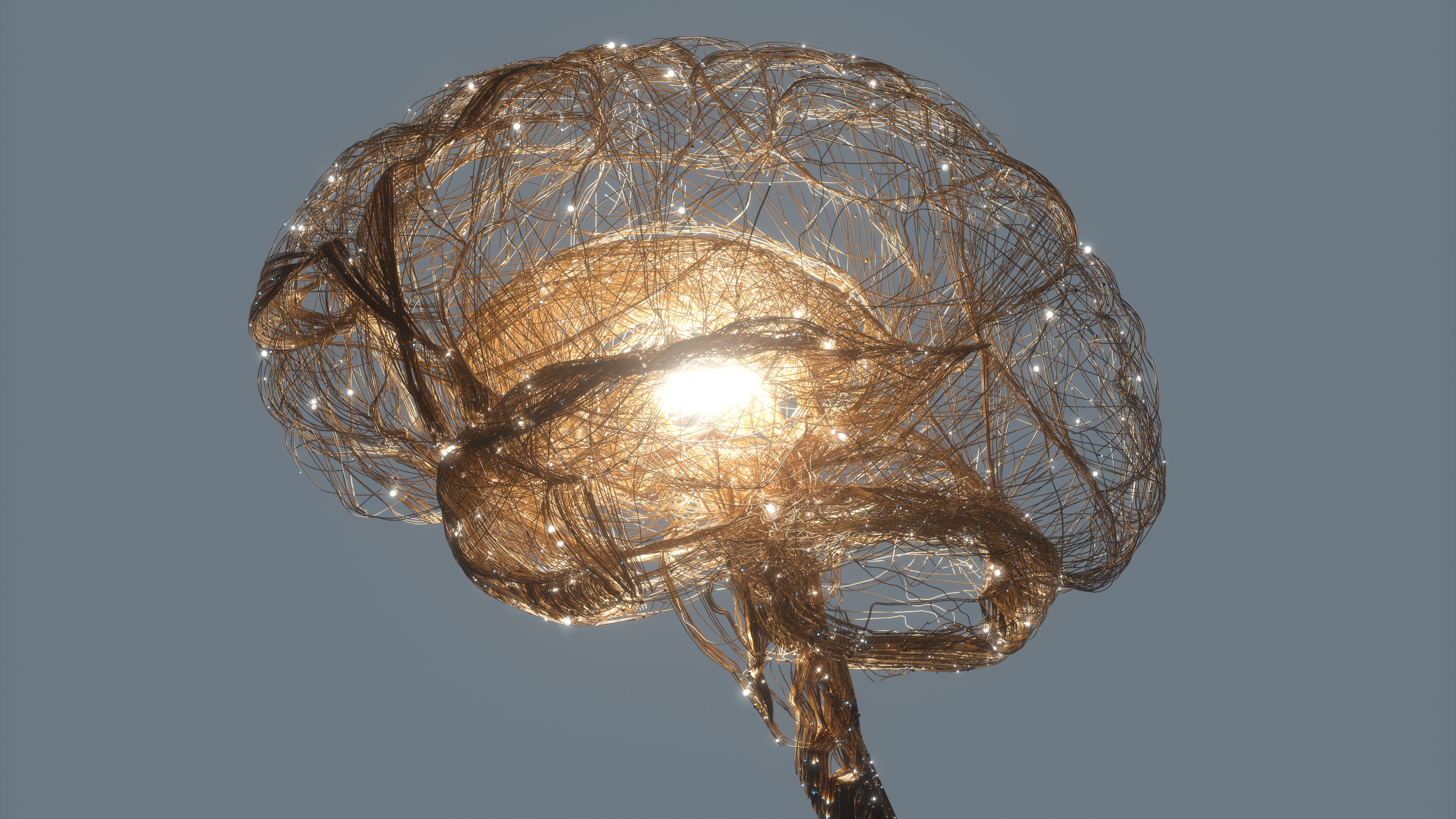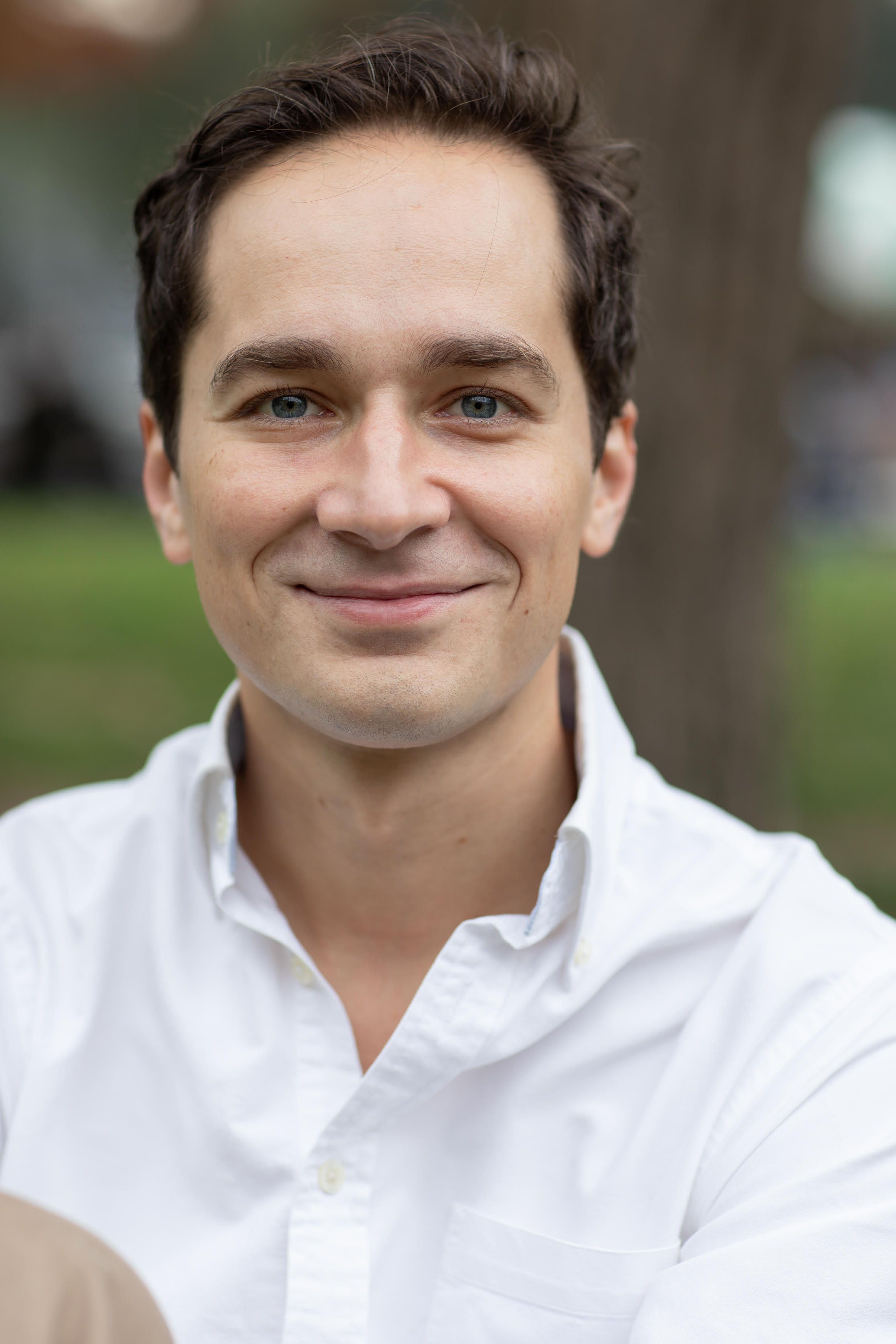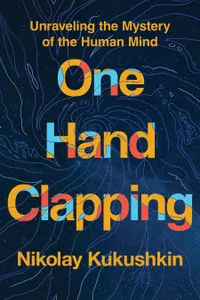The evolution of life on Earth 'almost predictably' led to human intelligence, neuroscientist says
Neuroscientist Nikolay Kukushkin spoke to Live Science about how human consciousness evolved.

Get the world’s most fascinating discoveries delivered straight to your inbox.
You are now subscribed
Your newsletter sign-up was successful
Want to add more newsletters?

Delivered Daily
Daily Newsletter
Sign up for the latest discoveries, groundbreaking research and fascinating breakthroughs that impact you and the wider world direct to your inbox.

Once a week
Life's Little Mysteries
Feed your curiosity with an exclusive mystery every week, solved with science and delivered direct to your inbox before it's seen anywhere else.

Once a week
How It Works
Sign up to our free science & technology newsletter for your weekly fix of fascinating articles, quick quizzes, amazing images, and more

Delivered daily
Space.com Newsletter
Breaking space news, the latest updates on rocket launches, skywatching events and more!

Once a month
Watch This Space
Sign up to our monthly entertainment newsletter to keep up with all our coverage of the latest sci-fi and space movies, tv shows, games and books.

Once a week
Night Sky This Week
Discover this week's must-see night sky events, moon phases, and stunning astrophotos. Sign up for our skywatching newsletter and explore the universe with us!
Join the club
Get full access to premium articles, exclusive features and a growing list of member rewards.
"Consciousness," although challenging to define, can be thought of as a first-person awareness of one's surroundings and oneself. You sense the world through your eyes, nose, ears and hands, and track your internal bodily states via interactions between your cells. These data streams collide to give rise to your personal perception of the world, your place within it, and your motivations for moving through it.
An enduring question about consciousness is how this state of awareness comes about. Is consciousness simply the result of a bunch of chemical reactions? Or is there some extra "secret ingredient"?
In the book "One Hand Clapping: Unraveling the Mystery of the Human Mind" (Prometheus/Swift Press, 2025), New York University neuroscientist Nikolay Kukushkin explores these questions. To do so, he traces the evolutionary history of human consciousness from the formation of Earth's first DNA molecules to present-day Homo sapiens. Kukushkin studies memory in non-brain biological systems, such as human kidney cells, as well as in simple organisms such as sea slugs. He also considers himself a "molecular philosopher."
"I like to think about mental processes, philosophical questions of life and existence from the ground up," Kukushkin told Live Science. Originally published in Russian, a new edition of "One Hand Clapping" has now been released in English. Live Science spoke with Kukushkin about the book and his views on the nature of human consciousness.
Nicoletta Lanese: In this book, what is your working definition of "consciousness"?
Nikolay Kukushkin: It can be defined from the top down, from our personal experience, or you can attempt, as I do, to define it from the ground up.
The top-down description would be consciousness is the first-personness of it all — the fact that to me, experience feels different than looking at someone else's experience, that internally, there is something else than just "facts of life" [meaning biological systems].
Get the world’s most fascinating discoveries delivered straight to your inbox.
I was having this debate with a philosopher colleague [who questioned], "How can the directionality of consciousness arise from the physical facts of the brain being there?" But to me, it's not a problem. Physics is directional — a rock "wants" to fall down. This potential energy is the gravitation of a system towards an energy minimum, and I think everything is that. It's just a level of complexity. A rock gravitates towards an energy minimum; for a rock, it just means falling down. A cell gravitates towards an energy minimum; for the cell, it might mean predicting the environment in some way. You get to a brain, you form these predictive expectations — millions of neurons talking to one another.
I think what puzzles them [proponents of the top-down definition] is the very directionality of a system towards some state, because they think the default is no directionality. I don't think there is such a default. I think physics, the entire universe, is directionality. Time is this unit of one thing leading to another, this unit of causality. So, if everything consists of these grains of causality, then I don't think it's that puzzling that we are driven towards anything, that there is some sort of drive of the system towards a state.
My ground-up definition of consciousness would be this particular form of causality as it plays out in our brain. And the reason why we think of it as "different" is because it's circular. We have this circulation of causality through the networks of our brain. We form predictions that affect how we perceive new data. That affects our predictions; that affects how we perceive new data.
There's this circular motion of causality that makes us constantly reevaluate our beliefs, including our beliefs about what we are and who we are, and what does it all mean and where we're currently present. And that rolling motion is consciousness, in my definition. I guess I challenge the top-down people to say, what else is missing?
NL: You note that this feedback loop helps set humans apart from computers — how so?
NK: The difference is that they [computers] form their perception — we could call it "the model" — before they start inferring. Basically, first they form their "beliefs," and then they start generating predictions based on those beliefs. What we do is we constantly circulate those things. Every prediction, every belief, everything we perceive, affects the model — and then the model feeds back on what we perceive, and it's a constant motion.

I think it's [consciousness is] possible to achieve in an artificial computer, but it requires a different microchip, because we currently have memory and processing separated. That's just the constraint of a silicon chip. If we had a more biologically similar chip that simultaneously memorizes and infers, and that would be constantly generating its own new beliefs — well, that I think is how AI starts really thinking for itself. Because then it can not just act upon what it was trained on, but it can train itself on its own inferences.
NL: In the book, you discuss stages in our primate ancestors' evolution that laid the groundwork for the human brain. What, then, introduced that next level of intelligence, what we think of as "humanness"?
NK: There's a couple of answers to this. First, what we often perceive as this unique humanness that's categorically different is not necessarily such a categorical difference. It's much more of a smooth transition.
There's a general trend that the size of the primate cortex — the "thinking part" of your brain — correlates with the size of the social group. And we humans are number one on both counts. The more friends you have, the bigger your brain has to be, because it's a really uniquely complicated operation to perceive the intentions and the motivations and the emotions of this large group of people. It becomes exponentially more complex as you add more people, because you have to take into account not just what each individual person thinks but then what each individual person thinks about each other.
What I'm describing is basically the "social brain hypothesis," though I would call it a theory. It's an explanation for why we're so smart, and it says that we are so smart because we are social. Traditionally, it was believed to be the other way: We are social because we have such a great brain. But this hypothesis is the other way around. We were forced to become social because of all this collective protection, and that is so complicated to handle for the brain that we had to become smarter, and we have to grow these larger and larger and larger brains. Eventually, you hit the point when you're a human.
NL: Are there other theories?
NK: So far, I've talked about this gradual progression, but there is a second answer. I think there is also something categorically different about humans, and that is language. It's not to say that Homo sapiens is necessarily the only species that has ever spoken any language — there's some debate about that. But I do think there's something categorical about language in this transition between animal communication and human communication.
That's the fact that our language is infinitely generative. There is no equivalent, as far as we know, in the animal kingdom of an infinitely generative system of communication. It's passed from human to human, like this cognitive virus, and there must have been a moment when this passage has become stable — when it took off, essentially. We have this natural tendency to create a language and pass it on.
NL: Do you see that as an extension of humans' theory of mind — being able to acknowledge and understand others' viewpoints?
NK: Absolutely, yes, I would agree with that. I think that the reason why we developed this language is fundamentally social. We wouldn't have developed it if we were solitary creatures.
There's this idea that language and the brain co-evolved together. You have to think of them as flowers and pollinators. It's not that flowers were caused by pollinators or pollinators were caused by the flowers; they both evolved together, mutually reinforcing each other, and I think the same is true for language in the human brain.
NL: You also raise this idea in the book that it was basically inevitable that humans — or some similar organism — would evolve on Earth. Why is that?
NK: When eukaryotes appear [in the history of life on Earth], I think that is this key moment in our history that sets in motion a trajectory that will eventually, like you said, almost predictably lead to the human species.
Why do I believe that? In this moment, what was created is this new type of organism, this "supercell" consisting of both bacteria and archaea that fused together. What this new cell is able to do that nobody else could do before is eat other organisms whole and steal energy away from them. It has a special membrane that it can bend and form vesicles inside, these bubbles in which it can contain its prey. And it has this powerhouse of the cell — mitochondria, the bacteria that entered this archaeal host.
That gives eukaryotes access to unprecedented quantities of energy and sets in motion this evolutionary arms race. They get greedy on this energy; they build up these massive, impressive, energetically expensive cells. But now these cells depend on a constant supply of prey, of somebody to eat. It will perish unless you keep adding more energy, and everybody else around you has the same problem. They need to eat and not be eaten. That sets in motion this evolution of even more complicated cells, of even more convoluted defense or offense, and then teeth and claws and shells.
As you get more complex, you become more vulnerable, too. Bacteria barely care about these mass extinctions; for them, an environmental cataclysm is easy to recover from. But as your organisms become more complex, they become really vulnerable. We started investing into more ways for these organisms to avoid danger, to be self-guided. Maybe to prevent their accidental death, give them a brain to make sure that it can tell where danger is, and so it can avoid that death.
Once you have a brain, well, you can't possibly include everything about that brain into the genetic instructions that you pass from generation to generation. The whole point of a brain is that it needs to learn for itself. Once you create that, this organism starts thinking for itself. It starts acquiring its own motivations that are not prescribed in genes. It starts developing its own thoughts, and that's how you eventually get to us.
We are a culmination of this trajectory. There wasn't anything special about our lineage, our line of evolution, compared to everything else. Eukaryotes compared to bacteria and archaea are special in precisely the same way as humans are special amongst all the creatures around us.
Editor's note: This interview has been lightly edited for length and clarity.
One Hand Clapping: Unraveling the Mystery of the Human Mind
"One Hand Clapping" draws from neuroscience, evolution, philosophy and a rich tapestry of cultural references to examine how Earth's history led to the formation of our own minds. The book reveals the deep continuity between our consciousness and nature itself.

Nicoletta Lanese is the health channel editor at Live Science and was previously a news editor and staff writer at the site. She holds a graduate certificate in science communication from UC Santa Cruz and degrees in neuroscience and dance from the University of Florida. Her work has appeared in The Scientist, Science News, the Mercury News, Mongabay and Stanford Medicine Magazine, among other outlets. Based in NYC, she also remains heavily involved in dance and performs in local choreographers' work.
You must confirm your public display name before commenting
Please logout and then login again, you will then be prompted to enter your display name.
 Live Science Plus
Live Science Plus











